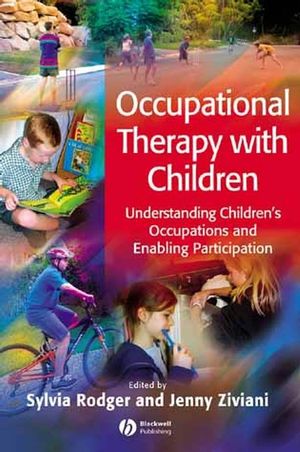Occupational Therapy with Children: Understanding Children's Occupations and Enabling ParticipationISBN: 978-1-4051-2456-0
Paperback
320 pages
June 2006, Wiley-Blackwell
 This is a Print-on-Demand title. It will be printed specifically to fill your order. Please allow an additional 15-20 days delivery time. The book is not returnable.
|
||||||
Section one examines children’s roles and occupations in
contemporary society at a broad level. Coverage includes the
child’s participation in the family, at school and in the
community. This section considers environmental influences on
childhood activities, and highlights children’s changing
occupational time use and the impact this has on health and
wellbeing. Section two focuses on childhood as a period of
significant development and skill acquisition. This is profiled as
a dynamic period for the therapist to encourage occupational
mastery across the spectrum of childhood experience: in play; in
self-care; as a student; and beyond the school grounds. Topical
chapters evaluate participation in physical activity and consider
the potential for ‘healthy’ leisure, along with the
risk characteristics associated with certain approaches to
leisure.
Occupational Therapy with Children is aimed at students
and practitioners of occupational therapy. Other childhood
professionals, particularly early childhood educators, will also
appreciate the articulate approach this book takes towards the
development of the child.
- Highly illustrated with contemporary photographs, drawings and
succinct tables
- Includes case studies; providing worked examples of therapeutic
applications
- Draws on the World Health Organisation International
Classification of Functioning, Disability and Health (ICF) to frame
the concept of children’s occupations and societal
participation
- Responsive to developments in occupational science
- Expert contributors provide international perspectives
From the Foreword by Professor Charles Christiansen, The
University of Texas Medical Branch, Galveston
[Occupational therapists] will find that this book provides a
framework that makes planning effective therapy with children
practical, relevant, and effective . . . [Rodger &
Ziviani’s] contribution to the literature has helped unleash
the genie of occupation in the service of improved therapy with
children.



